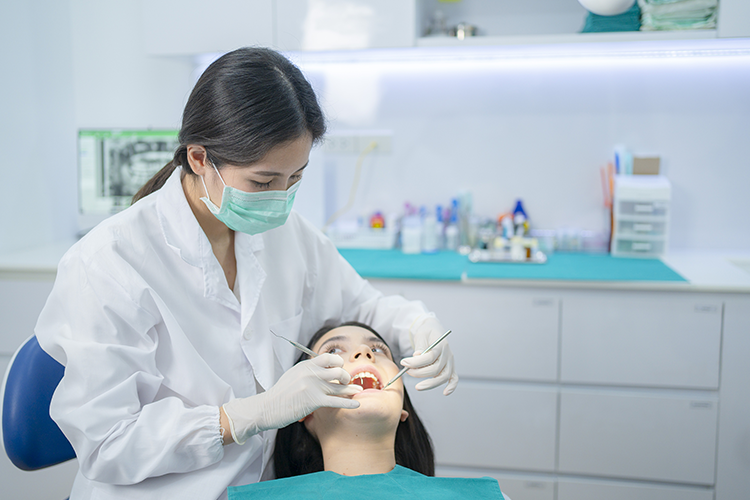Preventive Dentistry in Littleton, CO
Preventive dental care in Littleton, CO aims to prevent some common dental problems. Almost all dental issues such as cavities, gum disease, and teeth fractures can be prevented. Regular check-ups and cleanings will help your dentist identify high-risk areas in the mouth and give you preventive measures to stop the ailments from progressing further into harmful conditions.

Preventive dental care in Littleton, CO covers a wide range of treatments that help prevent some common dental diseases. Here are the most regular treatments that are done to keep the dental problems in control:
- Professional Teeth Cleanings
A dental hygienist or dentist will perform most teeth cleanings. They begin with an exam of your oral cavity and will check for signs of inflamed gums and other issues. Professional teeth cleaning will involve getting rid of plaque from the teeth. This is to prevent cavities and gingivitis, which could lead to periodontitis or another gum disease. Using a scaler, the dental hygienist removes the hardened tartar and plaque between the teeth and around the gum line. Contact us to learn more.
- Fluoride Treatments
Fluoride is a naturally available mineral that helps to strengthen the enamel and safeguards the teeth against cavities. Most societies add fluoride to their water supply. Most often, dentists will recommend a professional fluoride application to lower your risk of getting new cavities between visits. This benefits those who are at a greater risk of developing tooth decay. The application of fluoride is a rapid and straightforward process.
- Dental Sealants
Dental sealant treatment in Littleton, CO is primarily aimed at preventing decay in the deep hollows and pits of teeth. A sealant forms a thin covering over these hollows that tend to amass plaque, bacteria, and food buildup, developing into a cavity. Usually, the sealants are applied to the chewing surfaces of the molars and premolars. They are handy for young children who do not yet have the skills necessary to clean their teeth well. Sealing the grooves of teeth not only prevents cavities but also creates a smoother, shallower surface that is easy to clean.
- Protective Mouthguards
If you are suffering from clenching or grinding of your teeth, your dentist in Littleton, CO will suggest a mouthguard. The heavy forces of bruxism will put your teeth at risk for cracks, abrasion of teeth, and gum recession. Hence, protecting your teeth from those forces is vital. By wearing a nightguard to separate the teeth, you effectively reduce the forces that cause clenching or grinding and prevent the damage caused by these forces.
Call us at phone number (303) 9735280 or schedule an online appointment. Email us at Info@kencaryldentistry.com to know more about preventive dentistry.
Office Hours
MON8:00 am - 5:00 pm
TUE8:00 am - 5:00 pm
WED8:00 am - 5:00 pm
THU8:00 am - 5:00 pm
FRIClosed
SATClosed
SUNClosed
MON - THU 8:00 am - 5:00 pm
FRI - SUN Closed
The Courtyards at Deer Creek 7631 Shaffer Pkwy Suite B,
Littleton, CO
Phone : (303) 973-5280Text Us : (303) 973-5280

